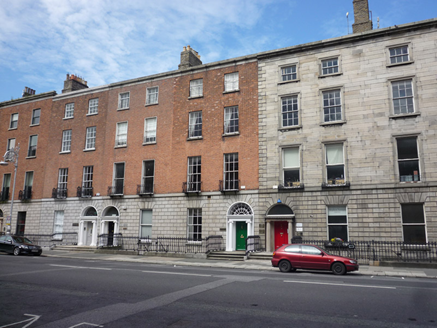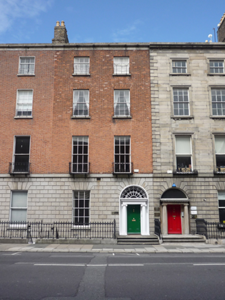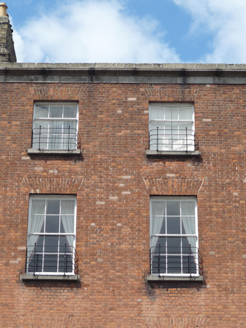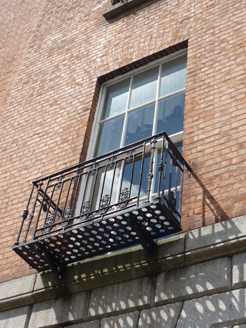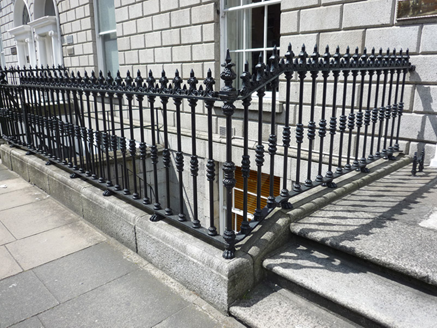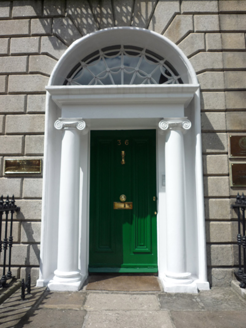Survey Data
Reg No
50930201
Rating
Regional
Categories of Special Interest
Architectural, Artistic
Original Use
House
In Use As
Office
Date
1835 - 1845
Coordinates
316452, 232874
Date Recorded
25/07/2015
Date Updated
--/--/--
Description
Mid-terrace two-bay four-storey former townhouse over basement, built c. 1840, as one of a pair with No. 35 (50930200). Two stage return to rear. Now in use as offices. M-profile slate roof with terracotta ridge tiles, hipped to north, concealed by ashlar granite parapet with moulded cornice and coping, pair of brick chimneys to south party wall with clay pots, parapet gutters and cast-iron rainwater goods to rear. Red brick walls in Flemish bond, rusticated granite walling to ground floor level over coursed ashlar limestone basement with granite stringcourse. Square-headed window openings with brick voussoirs, brick reveals, projecting granite sills, six-over-six timber sashes with horns, three-over-six to third floor. Cast-iron balconettes resting on granite platband at first floor level, iron guard rails to upper floors. Block-and-start granite surround to basement window, with replacement ten-over-ten timber sash. Round-headed opening to principal (east) elevation with pole-moulded rendered reveals, projecting Ionic columned entablature, cobwebbed fanlight and timber twin-panelled beaded muntin door with brass furniture. Granite entrance platform accessed via three granite steps. Original cast-iron railings to basement well affixed to granite plinth, concrete steps to basement level. Coal-hole cover to pavement. Replacement brick wall to west boundary with segmental-headed vehicular arch and steel railings to Lesson Close, abutted by gable-fronted two-storey random rubble stone building to south, which abuts to southern bay of two-storey mews building, both buildings have been extensively remodelled for use as offices.
Appraisal
This Georgian-style former townhouse is one of a terrace of three. It is shown on the 1843-7 OS map - the similar adjoining terrace, to the south, is not. With restrained detailing, vertical massing and well-balanced proportions this unified terrace forms an integral part of Fitzwilliam Place and contributes much to defining the character of the wider streetscape. The restrained façade is enlivened by decorative cast-iron balconettes, which add visual interest, while the boundary cast-iron railings and granite step enhance the street setting. The overall character of the terrace has been largely retained, Although the streetscape is largely cohesive in appearance, slight variations between the groups of terraces on Fitzwilliam Place is illustrative of the incremental nature of speculative development.
